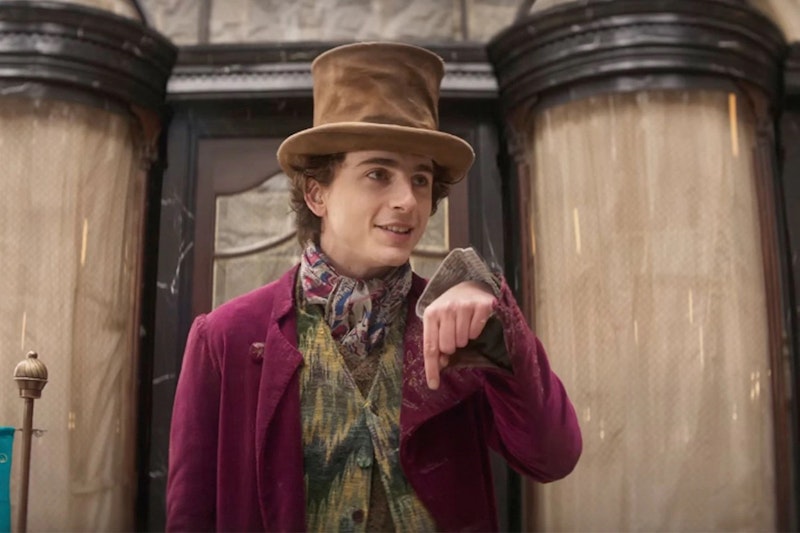Disney has shown that it can make a mesmerizing origin story film: Cruella, the 2021 origin story for Cruella de Vil, starring Emma Thompson and Emma Stone, won an Oscar and many other rewards, and earned about two and half times its estimated budget of $100 million. You can watch it again and again and it remains entertaining, probably because it’s something of a revenge tale, a retelling of The Count of Monte Cristo.
Wonka, in theaters now, can barely hold your attention, though kids may like it, and it has already made many times its $15 million budget. But it’s not a rich dark chocolate, in part because it’s a kind of plagiarism, where the Willie Wonka and Oompa Loompa characters created by Roald Dahl are stolen and plopped down in, not a Dahl story, but a B movie remake of Charles Dickens’ A Christmas Carol, complete with Scrooges and orphans and a poorhouse.
Dahl books tend to be dark and even macabre: witches turn children into mice, the original Wonka dispatches rude and obnoxious children in his chocolate factory, cannibalistic giants eat regular humans. You might think these stories, which Dahl wrote for his own kids, would be too much for children. But The BFG (cannibalistic giants) is a book public schools use to teach third graders to read “chapter books” with no pictures, and think about settings, plots, characters, conflicts and resolutions. And kids like it.
Wonka fails not just because it isn’t really a Dahl story, but because the actors can’t carry it off. Timothee Chalamet can dance and sing, but he doesn’t have the same otherworldly whimsy that Gene Wilder did. He’s odd like Wilder, but Chalamet’s oddity is that of a lanky emaciated supermodel androgyne, whose corpse will be used as a scarecrow. His resting facial expression is of a predator on the hunt in a singles bar, probably a gay bar, not for actual conquests but just to dominate by being the center of fearful and distant admiration. Major comic and other talents—Rowan Atkinson, Matt Lucas, Keegan-Michael Key, Hugh Grant, James Carter—can’t save it. Perhaps Disney would’ve been smarter to just make a gender-bending Wilma Wonka and have Emma Stone play her. She would have been better.
Additional weird aspects of Wonka are its discontinuity with the later story of the Dahl book and its Netflix-like DEI casting. In the 1971 Gene Wilder movie, set in a Londonish northern European city, everyone’s white, except for the orange Oompa Loompas; in the current story, there’s a black Scrooge who runs a criminal chocolate cartel, a black police chief, and a pre-teen black girl who becomes Wonka’s conspirator (and many other minor black characters). What happens to the black people between this “origin” story and the book and movie we previously knew?
Calah Lane, the young actress who plays “Noodle” (Wonka’s fellow poorhouse inmate) almost saves the movie with “black girl magic.” Or rather she’s just good in the role. (But since lately “black girl magic” has taken a beating, from The Marvels flop to a plagiarizing Harvard president who conjured a PhD from paint by number and Etch a Sketch, it needs all the help it can get.) Though Wonka has over 40 hair and makeup artists on its crew, both Lane and Chalamet have slightly splotchy skin and moustache shadow in their many close-ups. It’s distracting and annoying.
But what happened to Noodle? She’s not in the later (i.e. original) story. It may not be a case of the black character(s) being killed off in the first 10 minutes, but they do seem to have been eliminated between the prequel and the story for which it’s a prequel.

